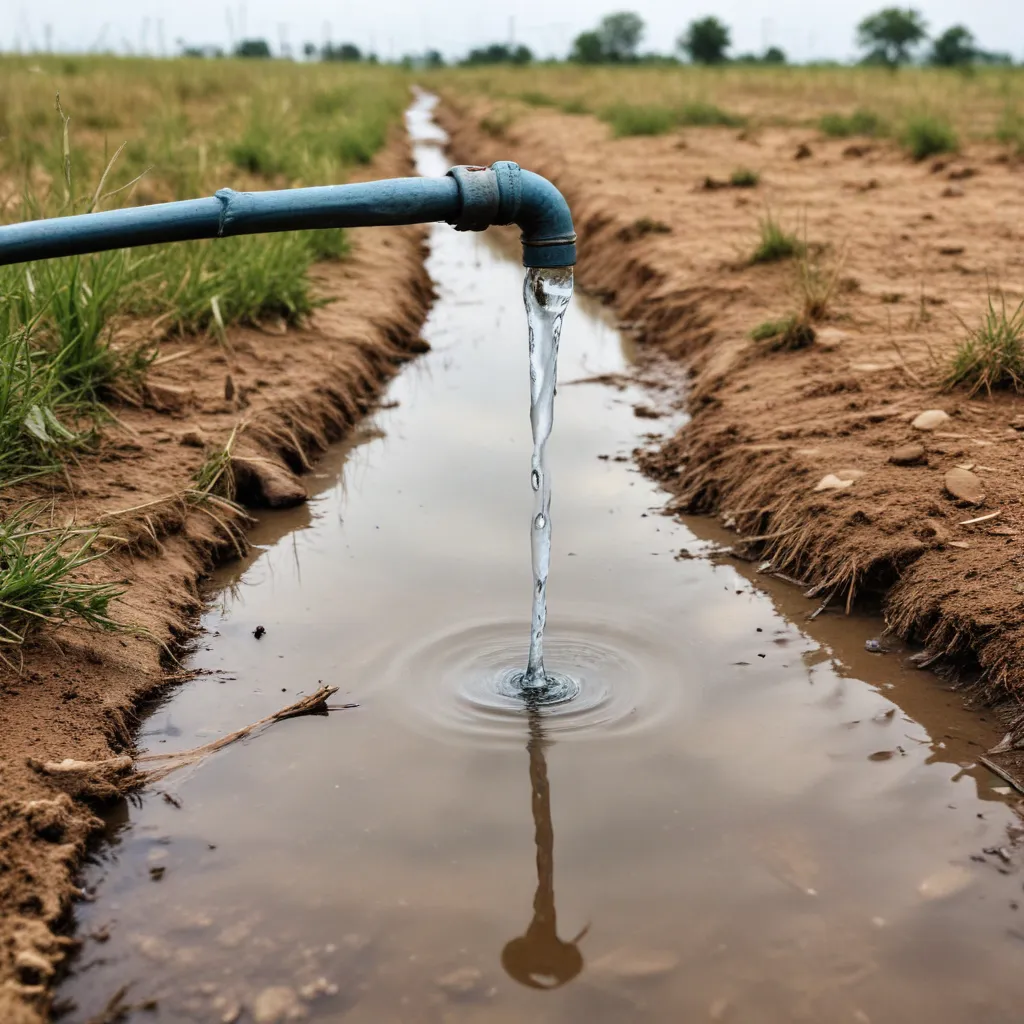
The Crisis of Water Access and Sanitation
Water, the elixir of life, is the basis upon which all living things exist. Yet access to this precious resource varies greatly depending on geographical, historical, socio-economic, and political factors. In South Africa, water rights are enshrined in law, and the government is mandated to provide a minimum of 6,000 litres of free water per household, a reliable toilet or latrine, and no more than seven days without water per year. Sadly, the reality for many marginalized communities does not reflect these goals, as the state lacks the capacity to deliver these basic provisions.
The Free State Province, a landlocked region in central South Africa, offers a microcosm of the ever-worsening water and sanitation crisis. Since the end of Apartheid in 1994, the regional government run by the African National Congress (ANC) has failed to reverse the legacy of unequal infrastructure and service provision. Instead, the situation has deteriorated due to corruption, lack of investment, declining human capacity, inefficient management, and ineffective legal and political structures.
Today, communities, individuals, and businesses across the Free State lack adequate and regular access to safe water, resulting in a human rights disaster. The impacts are far-reaching and severe, with schools and medical facilities experiencing closures, a rising threat of waterborne diseases, and a loss of dignity for many in the community. Moreover, the water-based fragility is contributing to disinvestment, unemployment, and poverty in the region.
The Political Roots of Water Fragility
At the heart of the Free State’s water crisis lies a political landscape marred by stagnation, inefficiency, and corruption. The ruling ANC, which has held power for over 30 years since the end of Apartheid, has implemented a flawed system of cadre deployment. This has seen the placement of party loyalists in decision-making positions at the expense of technically skilled and experienced civil servants.
As a result, decisions over water and sanitation issues are commonly made by those without the requisite knowledge and experience, driven more by political interests than the needs of the communities they serve. Corruption is also recognized as being systemic, reaching across all levels of government and private industry.
The economic impacts of this political mismanagement are self-reinforcing. As the region’s economy stagnates and contracts, spending on services like water is reduced, further exacerbating the crisis. Municipalities are falling into debt, unable to purchase essential bulk services, while the loss of treated water through leaking distribution pipes is estimated to cost billions of rands.
Environmental and Security Challenges
The dire state of water and sanitation provision in the Free State has not only impacted the economy but also the environment and community security. The microbiological and chemical pollution of drinking water, with almost half of the province’s water treatment plants posing a serious health risk, has had devastating consequences.
Beyond the direct impact on human health, this environmental degradation threatens the region’s crucial tourism and agricultural industries. Contaminated food crops further undermine food security, while the security of communities living along the Lesotho border is jeopardized by ongoing conflicts over land and water resources.
Social Impacts and the Need for a Paradigm Shift
The water and sanitation crisis in the Free State has far-reaching social impacts, driving high levels of unemployment, poverty, and debt. With individuals unable to fully participate in social or economic activities without reliable access to water, the province has seen an exodus of skilled and educated residents, further stripping the state of its potential wealth generators.
To address these complex, interconnected challenges, the Democratic Alliance has proposed a series of initiatives that aim to shift the political landscape and foster a culture of transparency, accountability, and responsiveness in governance. These include:
- Placing technically qualified and experienced individuals in decision-making roles over water and sanitation management, rather than relying on politically motivated appointees.
- Significant investment in the infrastructure of water and sanitation networks to improve service delivery.
- Stronger legislative oversight and the enforcement of existing laws to combat corruption, water pollution, and water-related crimes.
- Building social capacity through education programs that emphasize the scarcity of water and approaches for its sustainable use.
The Free State water crisis offers a case study in the mismanagement of a vital resource, with lessons that resonate across South Africa and beyond. However, it also presents an opportunity for the province to become a model of change, fighting inefficiency and criminality at all levels of governance, and leaving a legacy of water security for generations to come. To achieve this, a fundamental shift in the political landscape and a collective commitment to a culture of abundance, rather than scarcity, will be essential.
Conclusion: Embracing an Abundance Mindset
As the world faces the looming challenges of peak everything – peak oil, peak water, peak soil, and more – the temptation to succumb to despair and fatalism is strong. Yet, by embracing an abundance mindset and a shared commitment to sustainability, we can chart a course towards a more resilient and equitable future.
The water crisis in the Free State, while a testament to the fragility of our systems, also offers a call to action. By investing in infrastructure, fostering transparency and accountability in governance, and empowering communities to be stewards of their own resources, we can transform scarcity into abundance. This will require a paradigm shift, one that challenges the status quo and unleashes the creative potential of human ingenuity and collective action.
As we navigate the turbulent waters of the 21st century, let us remember the words of the Joint Action for Water initiative: “Water, water everywhere, not a drop to drink.” It is a rallying cry that demands our attention and our resolve, for the sake of present and future generations. By working together, we can ensure that the elixir of life flows freely and equitably, sustaining both our communities and our planet.

